Physics
Sign up for our newsletter
We summarize the week's scientific breakthroughs every Thursday.
-
 Chemistry
ChemistryHere’s why some Renaissance artists egged their oil paintings
Some Renaissance artists created eggs-quisite paintings by adding yolks to oil paints, which may have helped add texture and prevent yellowing.
By Jude Coleman -
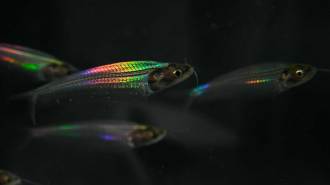 Animals
AnimalsThese transparent fish turn rainbow with white light. Now, we know why
Repeated structures in the ghost catfish’s muscles separate white light that passes through their bodies into different wavelengths.
-
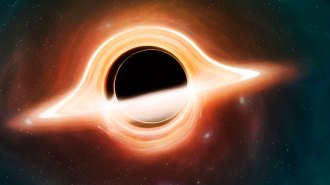 Math
MathHere’s a peek into the mathematics of black holes
The universe tells us slowly rotating black holes are stable. A nearly 1,000-page proof confirms it.
-
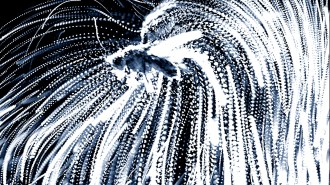 Physics
PhysicsStatic electricity helps parasitic nematodes glom onto victims
The small electric charge generated by a moving insect is enough to affect the trajectory of a parasitic nematode’s leap so it lands right on its host.
-
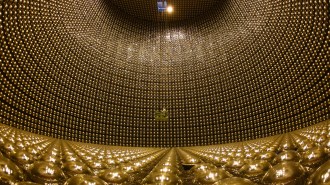 Particle Physics
Particle Physics‘Ghost Particle’ chronicles the neutrino’s discovery and what’s left to learn
Author James Riordon discusses his new book, why neutrinos are so important and how physicists are on the verge of making big discoveries about them.
By Erin Wayman -
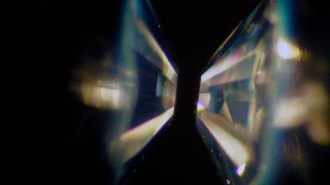 Physics
PhysicsIs this the superconductor of scientists’ dreams? A new claim faces scrutiny
It’s big, if true: transmitting electricity with no resistance at room temperature and moderate pressure. But controversy dogs the team making the claim.
By Emily Conover and James R. Riordon -
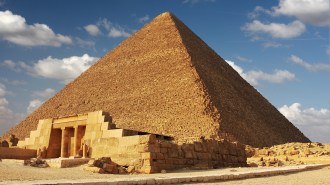 Particle Physics
Particle PhysicsMuons unveiled new details about a void in Egypt’s Great Pyramid
The subatomic particles revealed the dimensions of the void, discovered in 2016, and helped researchers know where to stick a camera inside.
-
 Climate
ClimateAn incendiary form of lightning may surge under climate change
Relatively long-lived lightning strikes are the most likely to spark wildfires and may become more common as the climate warms.
By Nikk Ogasa -
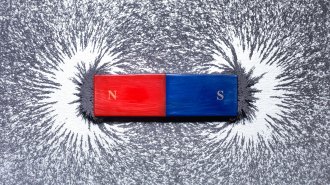 Physics
PhysicsThe standard model of particle physics passed one of its strictest tests yet
An experiment with a single electron, trapped for months on end, produced one of the most precise tests yet of the standard model of particle physics.
-
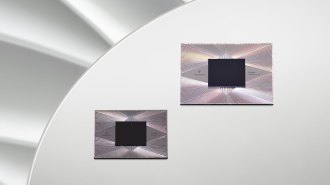 Quantum Physics
Quantum PhysicsGoogle’s quantum computer reached an error-correcting milestone
A larger array of quantum bits outperformed a smaller one in tests performed by Google researchers, suggesting quantum computers could be scaled up.
-
 Animals
AnimalsGlassy eyes may help young crustaceans hide from predators in plain sight
Nanospheres in the eye reflect light that matches the color of the surrounding water, possibly making the animals invisible to nearby predators.
-
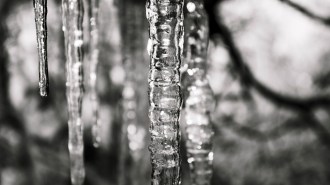 Physics
PhysicsHere’s why icicles made from pure water don’t form ripples
A new study explains why icicles made from pure water have irregular shapes rather than the ripples typical of the salty icicles found in nature.